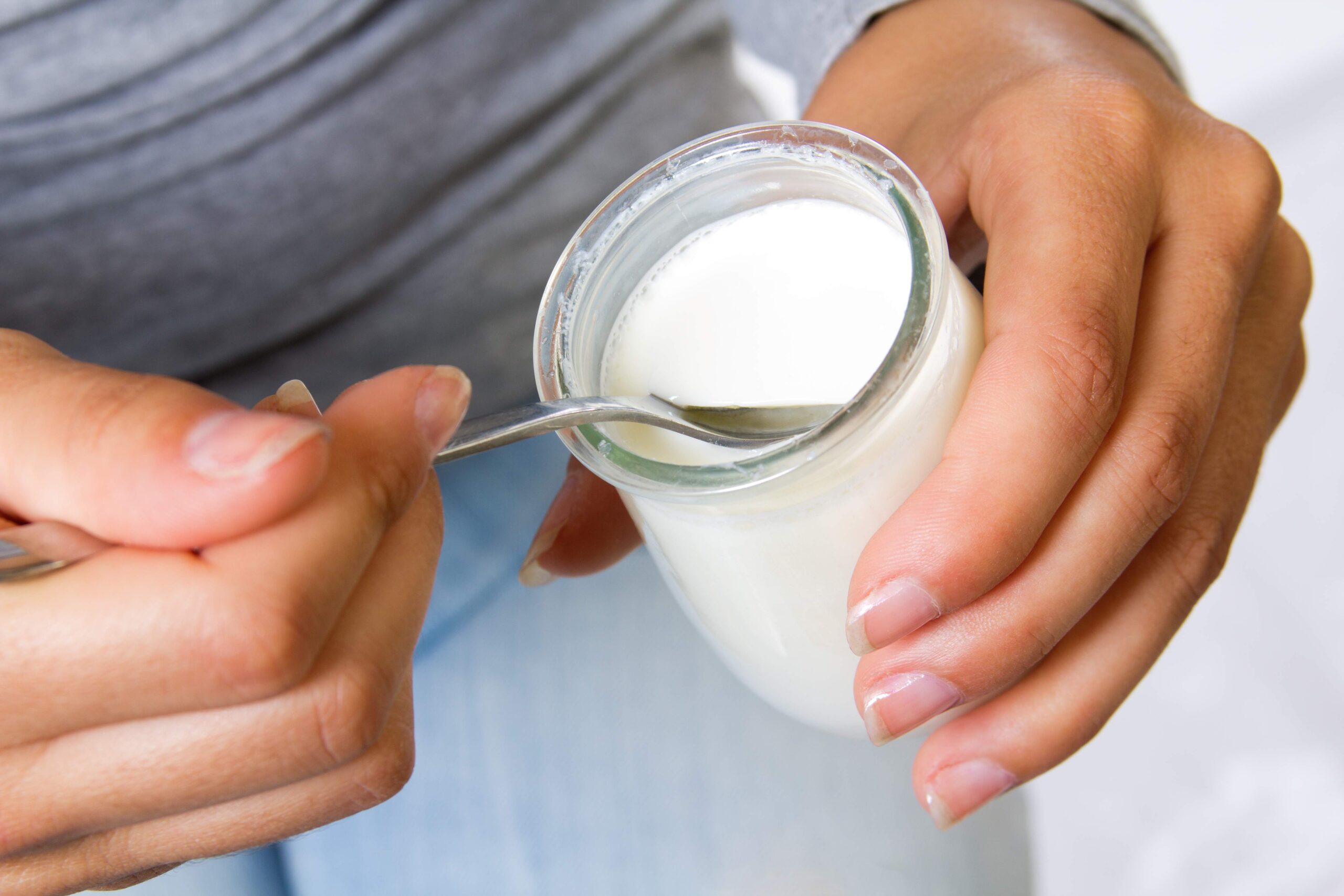Casein is a protein that naturally occurs in milk, and it serves several important purposes for mammals.
The presence of casein in milk is essential for the survival and nourishment of young mammals, including humans.
Here are a few reasons why casein is present in milk:
Nutrition
Casein is a rich source of essential amino acids, which are the building blocks of proteins. It provides vital nutrients for the growth and development of newborns.
Structural Role
Casein has the unique ability to form micelles, which are small spherical clusters of protein molecules. These micelles help to maintain the stability and integrity of milk by dispersing the fat and preventing it from separating.
Digestion
Casein forms a curd in the stomach when it reacts with stomach acid. This curdling process slows down the digestion and absorption of milk, ensuring a sustained release of nutrients over time.
Protection
Casein acts as a protective agent for the other components of milk, such as vitamins and minerals, shielding them from degradation and maintaining their bioavailability.
Taste and Texture
Casein contributes to the creamy texture and smooth taste of milk, enhancing its sensory appeal.
It’s worth noting that casein is not exclusive to cow’s milk; it is found in the milk of various mammals, although the exact composition and ratio of casein may differ among species.
Is casein a good protein
It is a high-quality, complete protein derived from milk.
Casein protein is particularly rich in essential amino acids, which are the building blocks of proteins that the body cannot produce on its own and must obtain from dietary sources.
One of the main advantages of casein protein is its slow digestion and sustained release of amino acids into the bloodstream.
This slow-release property makes casein an excellent protein choice for promoting muscle recovery and growth, as it can provide a steady supply of amino acids over an extended period, including during periods of fasting such as overnight sleep.
However, it’s important to note that individual nutritional needs may vary, and the suitability of casein protein as a dietary choice depends on factors such as personal goals, dietary preferences, and potential allergies or intolerances.
Consulting with a healthcare professional or registered dietitian can provide personalized advice based on your specific circumstances.
How much casein should I take a day
The appropriate amount of casein to take in a day can vary depending on individual factors such as age, weight, overall dietary needs, and any specific health goals or restrictions.
It’s always a good idea to consult with a healthcare professional or registered dietitian who can provide personalized advice based on your specific circumstances.
Some general guidelines suggest consuming around 20-30 grams of casein protein per serving.
If you’re using casein as a dietary supplement, the manufacturer’s recommendations on the product packaging can provide guidance on serving sizes and frequency. It’s important to follow those instructions or consult with a healthcare professional for more precise recommendations.
It’s worth noting that obtaining protein from a variety of sources, including both animal and plant-based foods, is typically beneficial for overall nutritional balance.
Therefore, it’s a good idea to incorporate a diverse range of protein sources into your diet, rather than relying solely on casein or any single protein supplement.
Is it OK to drink casein protein after workout
Yes, it is generally okay to drink casein protein after a workout.
Casein protein is rich in essential amino acids, which are the building blocks of proteins.
Consuming protein after a workout helps provide your muscles with the necessary nutrients for repair and recovery.
Due to its slow digestion rate, casein protein provides a sustained release of amino acids into the bloodstream, which can help support muscle protein synthesis over an extended period of time.
This can be advantageous for promoting muscle recovery and reducing muscle breakdown, especially during periods of prolonged fasting such as overnight.
However, it’s important to note that individual needs and preferences can vary.
Some people may find that casein protein works well for them post-workout, while others may prefer different protein sources.
It’s always a good idea to experiment and see how your body responds to different types of protein and adjust your intake accordingly.
What are the negative effects of casein
Casein is a type of protein found in milk and other dairy products.
While it is generally considered safe for consumption, some individuals may experience negative effects due to casein intolerance or allergy.
Allergic reactions
Some individuals may be allergic to casein, which can cause symptoms such as hives, itching, swelling, difficulty breathing, and in severe cases, anaphylaxis. Allergic reactions to casein are more common in children, but can also occur in adults.
Lactose intolerance
Although lactose intolerance is not directly related to casein, some people with lactose intolerance may also experience discomfort or digestive issues when consuming casein-containing products.
Digestive problems
Casein can be difficult to digest for some individuals, particularly those with a sensitivity or intolerance to it. Digestive issues such as bloating, gas, diarrhea, or constipation may occur when consuming casein-containing foods.
Inflammation
There is some evidence suggesting that casein consumption may contribute to inflammation in certain individuals. Inflammation has been associated with various health issues, including gastrointestinal disorders and autoimmune conditions.
Acne
Some people believe that casein consumption can worsen acne symptoms.
If you suspect you have an allergy or intolerance to casein, it is recommended to consult with a healthcare professional for an accurate diagnosis and guidance on dietary adjustments.

